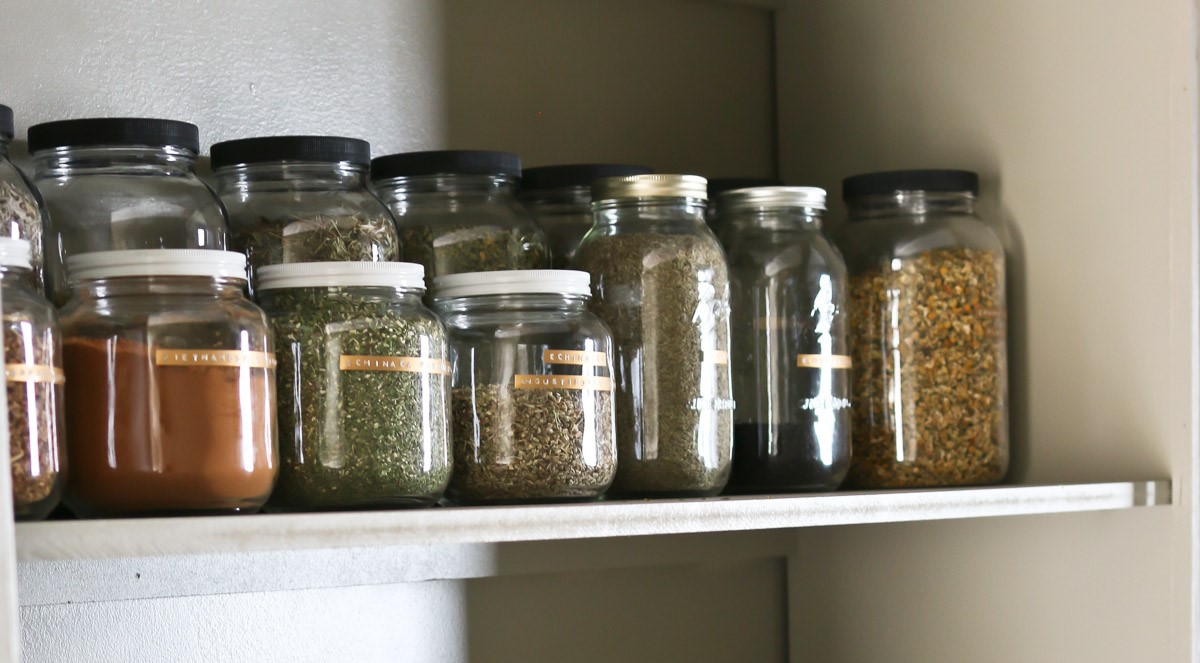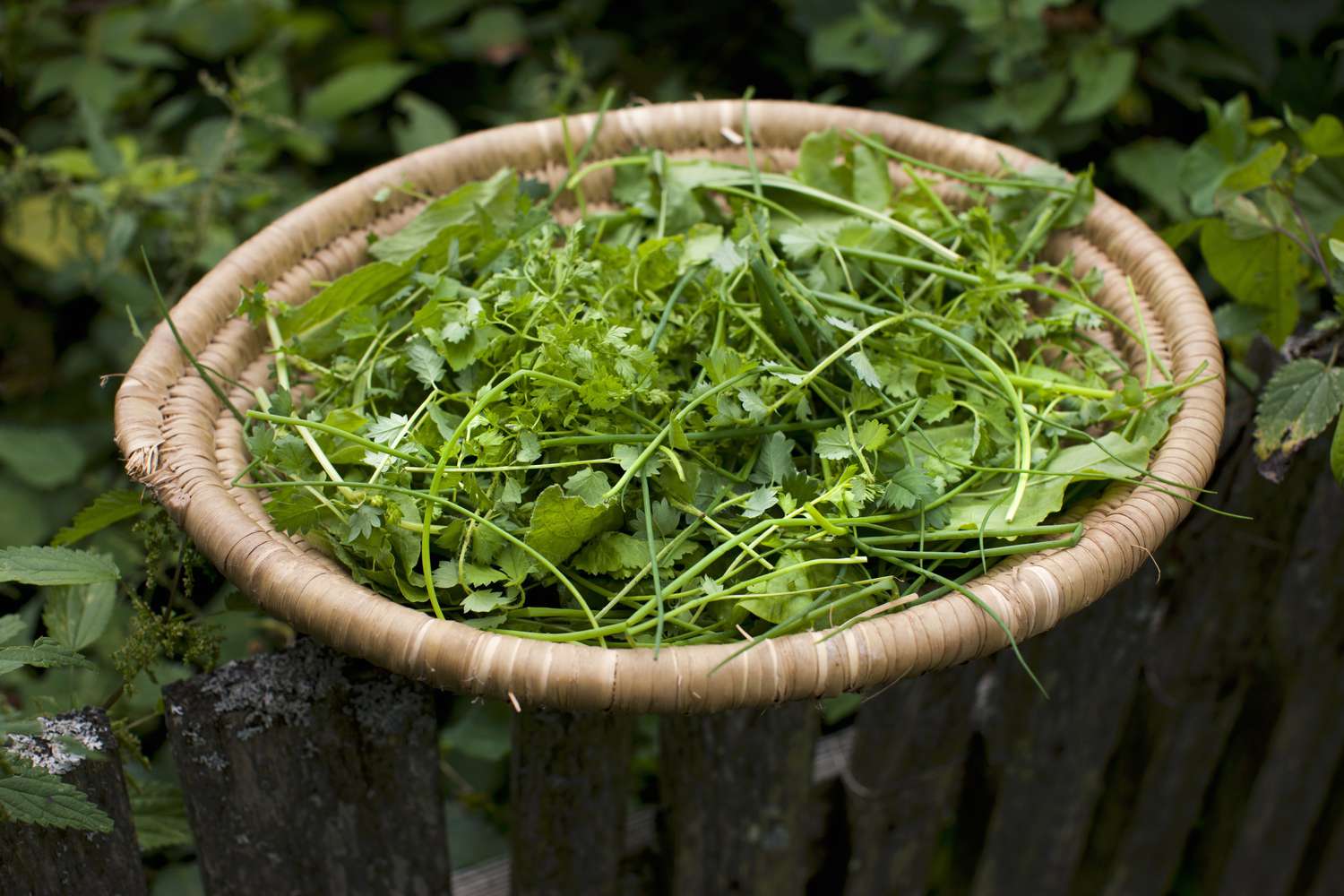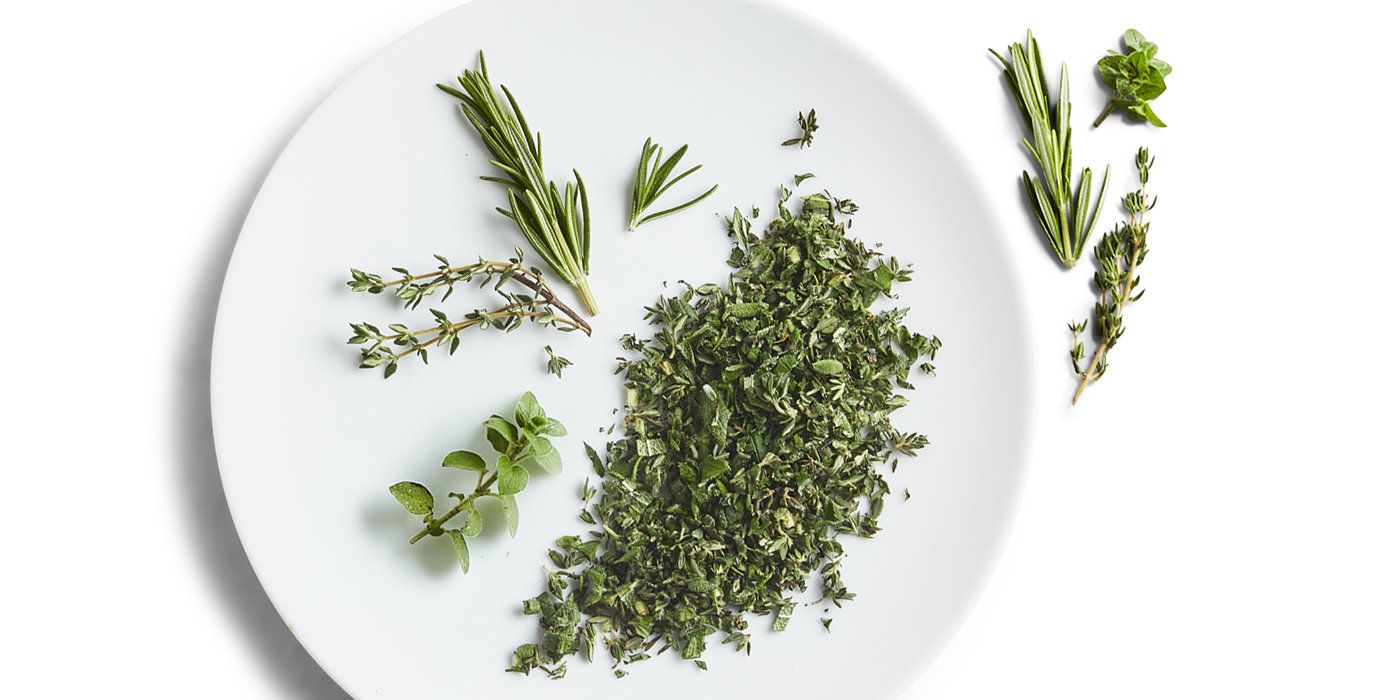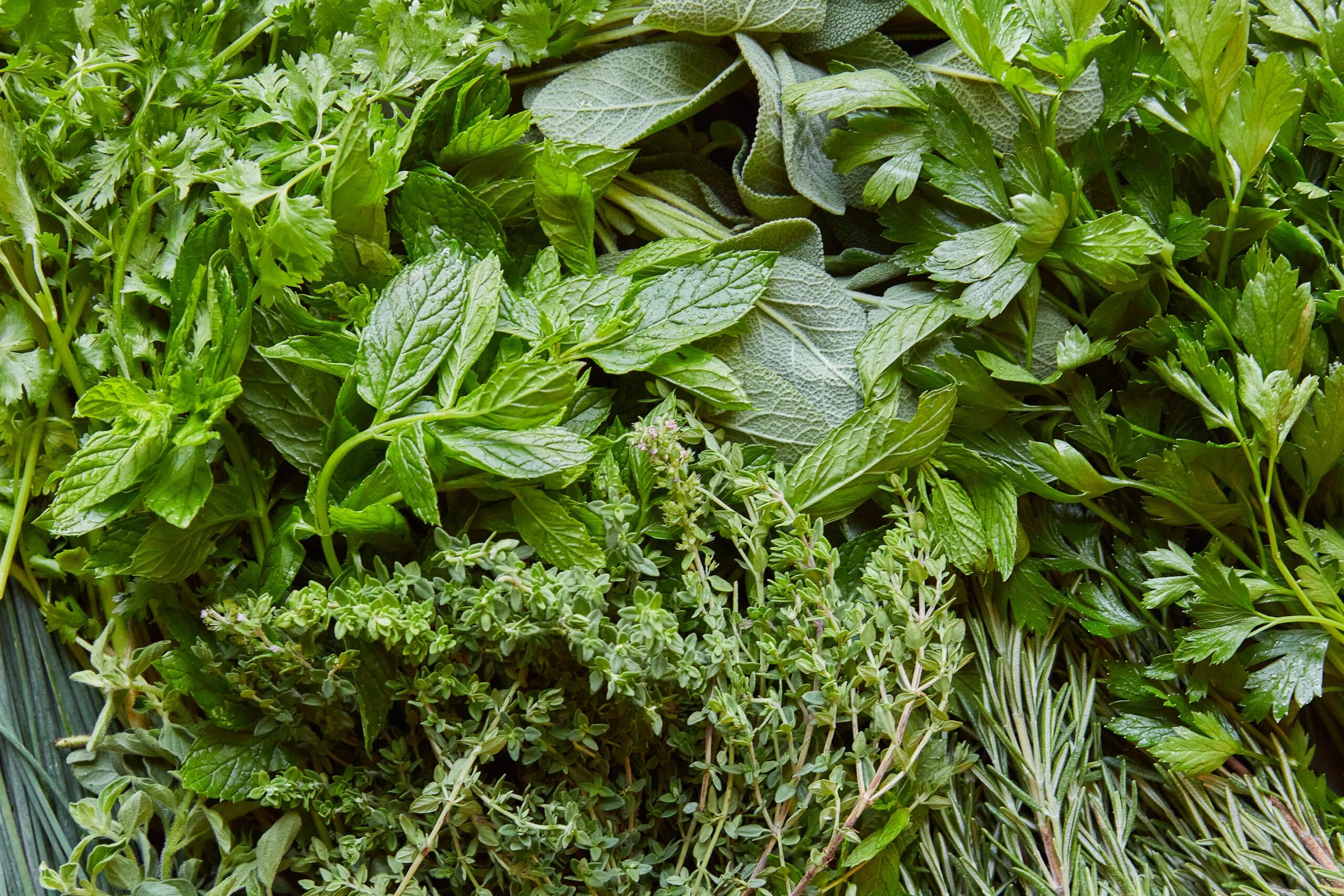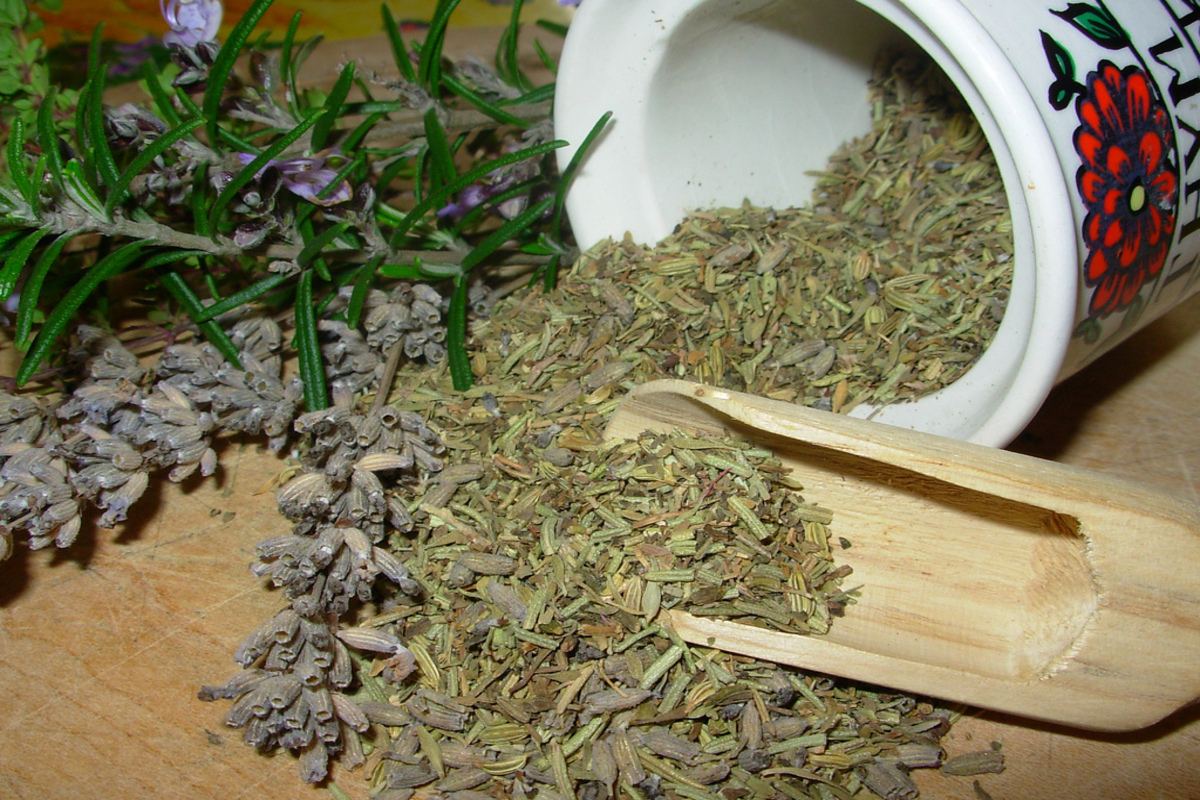Home>Gardening News and Trends>Gardening Trends>What Herbs Lower Cortisol
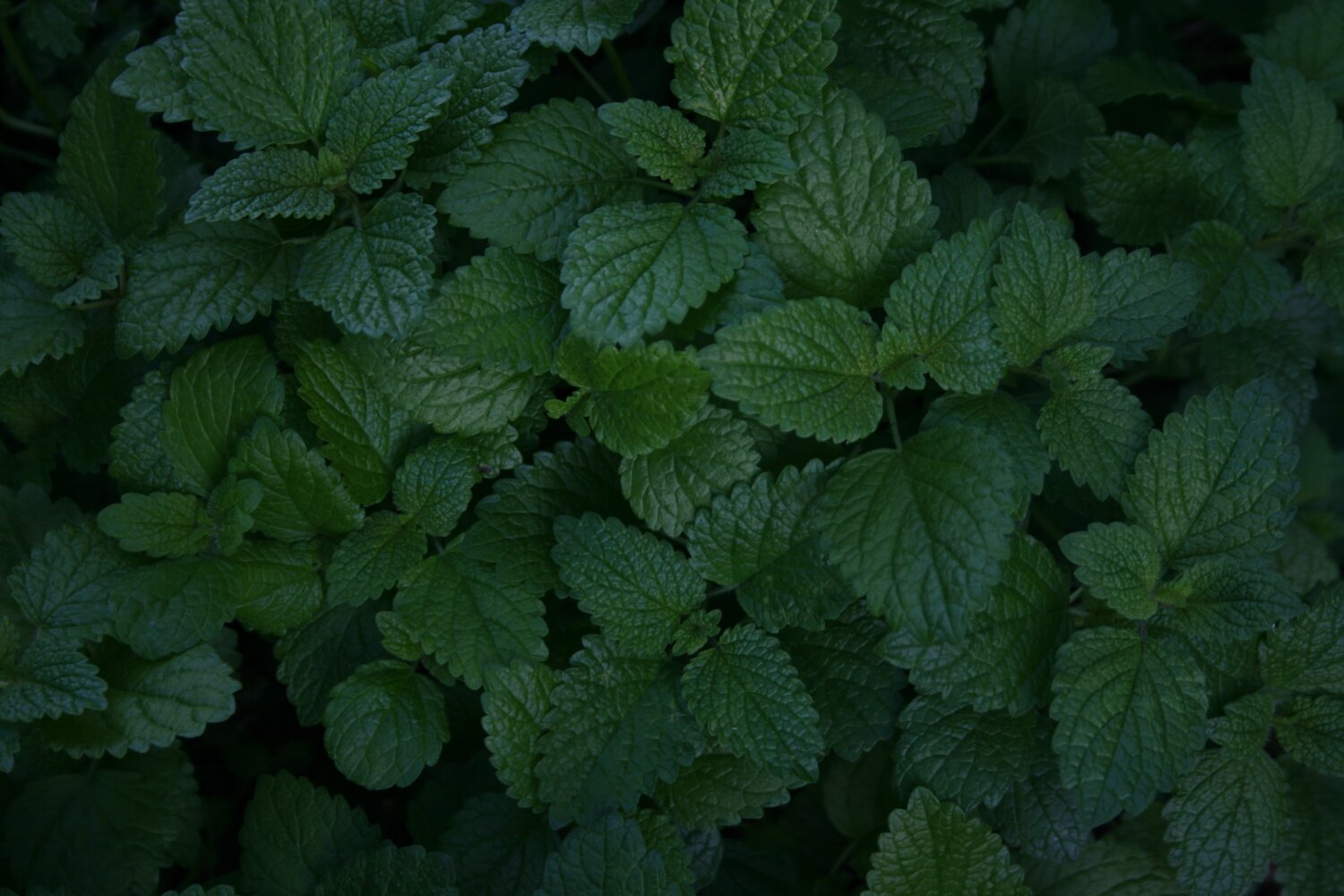

Gardening Trends
What Herbs Lower Cortisol
Published: September 29, 2023
Discover the latest gardening trends and learn about the herbs that can effectively lower cortisol levels. Enhance your well-being naturally with these powerful botanical remedies.
(Many of the links in this article redirect to a specific reviewed product. Your purchase of these products through affiliate links helps to generate commission for Chicagolandgardening.com, at no extra cost. Learn more)
Table of Contents
Introduction
The human body is a complex system that constantly strives to maintain balance and deal with various stressors. One crucial hormone involved in stress regulation is cortisol. Cortisol, also known as the “stress hormone,” is produced by the adrenal glands in response to physical or psychological stressors. While cortisol plays a vital role in the body’s stress response, consistently elevated levels can have detrimental effects on overall health and well-being.
High cortisol levels have been linked to a range of health issues, including obesity, high blood pressure, insulin resistance, weakened immune function, and even mental health problems like anxiety and depression. Therefore, finding ways to naturally lower cortisol levels is essential for maintaining optimal health.
Fortunately, nature provides us with various herbs that have been traditionally used for their calming and stress-relieving properties. These herbs can help lower cortisol levels and promote a sense of relaxation and well-being. Incorporating these herbs into your daily routine can support your body’s natural stress response and help you better manage the challenges of daily life.
In this article, we will explore ten herbs that are known for their ability to lower cortisol levels. From ancient traditional medicines to modern scientific research, these herbs have been celebrated for their stress-reducing properties. So, let’s dive in and discover the power of nature’s botanical allies in combating high cortisol levels.
Understanding Cortisol Levels
Before we delve into the herbs that can help lower cortisol levels, it’s important to have a basic understanding of what cortisol is and how it affects the body.
Cortisol is a hormone that is naturally produced by the adrenal glands in response to stress. Its primary function is to help the body deal with stress by increasing glucose levels, suppressing the immune system, and aiding in the metabolism of fats, proteins, and carbohydrates. When faced with a stressful situation, cortisol levels rise to provide the body with the energy it needs to respond effectively.
While cortisol is necessary for our survival, chronic stress can lead to consistently elevated cortisol levels, which can have negative effects on our health. Prolonged exposure to high cortisol levels can disrupt various bodily functions, including digestion, sleep, immune function, and even memory and cognition. Additionally, high cortisol levels have been associated with weight gain, particularly around the abdominal area, which can increase the risk of obesity and related health conditions.
Monitoring cortisol levels can be an essential part of managing stress and ensuring overall well-being. This can be done through various methods, including blood, saliva, or urine tests. These tests provide insights into whether cortisol levels are within a healthy range or if further intervention is needed to bring them back into balance.
It’s important to note that cortisol levels naturally fluctuate throughout the day, with the highest levels occurring in the morning to help us wake up and get energized for the day ahead. This is known as the “cortisol awakening response.” As the day progresses, cortisol levels gradually decrease, reaching their lowest point in the evening, which helps prepare the body for restful sleep.
Understanding the natural rhythm of cortisol production and recognizing the signs of imbalances can empower individuals to take proactive steps in managing their stress levels and maintaining optimal health. By incorporating natural remedies, such as herbs, into our daily routines, we can support our body’s ability to regulate cortisol levels and cultivate a greater sense of well-being.
The Impact of High Cortisol Levels
High cortisol levels can have a profound impact on both our physical and mental health. When cortisol levels remain elevated for extended periods, it can lead to a range of health issues and create a state of chronic stress within the body.
One of the primary effects of high cortisol levels is an increased risk of developing conditions such as obesity, particularly visceral or abdominal fat. Cortisol promotes the storage of fat in the abdominal area, which can contribute to weight gain and lead to an increased risk of metabolic disorders, including high blood pressure, insulin resistance, and type 2 diabetes.
Elevated cortisol levels also weaken the immune system, making individuals more susceptible to infections and illness. Chronic stress and high cortisol levels dampen the body’s immune response, making it more challenging to fight off pathogens and viruses.
Furthermore, sustained high cortisol levels can disrupt various bodily functions, including digestion and nutrient absorption. It can lead to digestive issues, such as stomach ulcers, irritable bowel syndrome (IBS), and acid reflux, as well as impair the body’s ability to absorb essential vitamins and minerals.
Sleep disturbances are another common consequence of high cortisol levels. Elevated cortisol can disrupt the natural sleep-wake cycle and make it challenging to fall asleep or stay asleep throughout the night. This can result in chronic fatigue, decreased cognitive function, and a compromised overall sense of well-being.
Mental health is also significantly affected by high cortisol levels. Stress and cortisol dysregulation have been linked to anxiety, depression, and other mood disorders. Excess cortisol can disrupt the balance of neurotransmitters in the brain, leading to imbalances and contributing to mental health challenges.
In addition to the physical and emotional impact, high cortisol levels also negatively affect cognitive function. Chronic stress and elevated cortisol levels impair memory, attention, and decision-making abilities. This can interfere with daily functioning and productivity, leading to difficulties in work or personal life.
Recognizing the potential consequences of high cortisol levels highlights the importance of finding ways to naturally lower cortisol and manage stress. By incorporating herbal remedies into our self-care routines, we can help restore balance in the body, support overall well-being, and reduce the negative impact of chronic stress.
Natural Methods to Lower Cortisol Levels
Lowering cortisol levels naturally is crucial for maintaining overall health and well-being. Fortunately, there are various herbs that have been traditionally used for their stress-relieving properties and can help lower cortisol levels. Let’s explore ten of these natural remedies and how they can support stress reduction and promote a sense of calm and relaxation.
-
Ashwagandha
Ashwagandha is an adaptogenic herb that has been used for centuries in Ayurvedic medicine to help the body adapt to stress. It has been shown to lower cortisol levels, reduce anxiety, and promote a sense of overall well-being. Ashwagandha is available in supplement form and can be taken daily to support stress management.
-
Rhodiola Rosea
Rhodiola Rosea is another adaptogenic herb known for its stress-reducing properties. It helps the body adapt to physical and emotional stress by regulating cortisol levels and supporting a balanced stress response. Rhodiola Rosea is available in supplement form and can be taken daily to combat stress and fatigue.
-
Holy Basil
Holy Basil, also known as Tulsi, is a sacred herb in Ayurvedic medicine. It has adaptogenic properties that help the body cope with stress and lower cortisol levels. Holy Basil can be consumed as a tea or taken in supplement form for its stress-reducing benefits.
-
Passionflower
Passionflower is a calming herb that has been used traditionally to ease anxiety and promote relaxation. It works by increasing the brain’s levels of gamma-aminobutyric acid (GABA), a neurotransmitter that helps regulate stress and anxiety. Passionflower can be consumed as a tea or taken as a supplement to support stress reduction.
-
Lemon Balm
Lemon Balm is a soothing herb that helps calm the nervous system and reduce anxiety. It has been shown to lower cortisol levels and promote relaxation. Lemon Balm can be consumed as a tea or taken as a supplement to support stress management.
-
Chamomile
Chamomile is a gentle herb known for its calming properties. It helps promote relaxation, reduce anxiety, and improve sleep quality. Chamomile can be consumed as a tea or taken as a supplement to support stress reduction and induce a sense of tranquility.
-
Valerian Root
Valerian Root is a herb that has been traditionally used to ease anxiety and promote sleep. It helps regulate the nervous system, lower cortisol levels, and induce a sense of calm. Valerian Root can be consumed as a tea or taken as a supplement to support stress management and promote restful sleep.
-
Lavender
Lavender is known for its pleasant aroma and calming properties. It has been shown to lower cortisol levels, reduce anxiety, and improve sleep quality. Lavender can be used in essential oil form for aromatherapy or consumed as a tea to support stress reduction and relaxation.
-
Peppermint
Peppermint is a refreshing herb that not only helps soothe the digestive system but also has stress-reducing properties. It has been shown to lower cortisol levels and promote a sense of calm. Peppermint can be consumed as a tea or used in essential oil form for aromatherapy to support stress management.
-
Green Tea
Green tea contains an amino acid called L-theanine, which has calming effects on the body. It helps lower cortisol levels, reduce anxiety, and improve focus. Green tea can be consumed daily to support stress reduction and promote a state of relaxation.
Incorporating these natural remedies into your daily routine can help lower cortisol levels, reduce stress, and promote a greater sense of well-being. As with any herbal remedy, it’s important to consult with a healthcare professional before starting any new supplements, especially if you have pre-existing health conditions or are taking medications.
Ashwagandha
Ashwagandha, also known as Withania somnifera, is a popular adaptogenic herb with a long history of use in Ayurvedic medicine. It has been traditionally used to help the body adapt to stress and promote overall well-being. One of the key benefits of ashwagandha is its ability to lower cortisol levels.
Cortisol is often referred to as the “stress hormone” because its levels rise in response to stress. When cortisol levels remain elevated for extended periods, it can have detrimental effects on our physical and mental health. Ashwagandha helps regulate cortisol levels by reducing the activity of the enzyme that converts cortisone to cortisol, thus promoting a balanced stress response.
Several studies have shown the beneficial effects of ashwagandha on cortisol levels. In one study, participants who took ashwagandha extract experienced a significant reduction in cortisol levels compared to the control group. They also reported improvements in perceived stress levels and overall well-being.
Ashwagandha is available in various forms, including capsules, powders, and extracts. It can be taken daily as a supplement to support stress management and lower cortisol levels. The recommended dosage can vary depending on the extract’s concentration, so it’s advisable to follow the instructions on the product label or consult a healthcare practitioner for guidance.
In addition to its cortisol-lowering effects, ashwagandha has other notable benefits. It is known for its antioxidant properties, which help reduce oxidative stress and inflammation in the body. Ashwagandha also supports healthy immune function and can enhance cognitive function and memory.
It’s important to note that while ashwagandha is generally safe for most people, it may interact with certain medications or have contraindications for individuals with specific health conditions. Therefore, it’s best to consult with a healthcare professional before starting any new supplementation regimen.
Incorporating ashwagandha into your daily routine can be a valuable tool in managing stress and promoting overall well-being. Whether consumed as a supplement or added to smoothies or teas, ashwagandha offers a natural and effective way to lower cortisol levels and support your body’s stress response.
Rhodiola rosea
Rhodiola rosea, also known as Arctic root or golden root, is a powerful adaptogenic herb that has been used for centuries in traditional medicine to help the body cope with stress. Like ashwagandha, Rhodiola rosea works by regulating cortisol levels and supporting a balanced stress response.
Studies have shown that Rhodiola rosea can help lower cortisol levels, reduce perceived stress, and improve overall well-being. By modulating the production and release of cortisol, this herb helps the body adapt to stressors more effectively, reducing the negative impact of chronic stress on both the physical and mental health.
Rhodiola rosea contains bioactive compounds called rosavins and salidroside, which are believed to contribute to its stress-reducing effects. These compounds have been shown to possess adaptogenic properties, meaning they enhance the body’s ability to respond to stress and promote a state of balance or homeostasis.
In addition to its cortisol-regulating effects, Rhodiola rosea has been found to improve mental performance and reduce fatigue. It has been used traditionally to enhance cognitive function, increase focus, and reduce mental exhaustion. These cognitive benefits can be particularly helpful during times of increased stress or when facing challenging tasks.
Rhodiola rosea is available in various forms, including capsules, powders, and extracts. The recommended dosage can vary depending on the concentration of active compounds. It’s important to follow the instructions on the product label or consult a healthcare professional for advice on the appropriate dosage for your needs.
While Rhodiola rosea is generally safe, it may interact with certain medications or have contraindications for individuals with specific health conditions. It’s advisable to consult with a healthcare professional before adding Rhodiola rosea to your supplement routine, especially if you are taking medications for mental health issues or have underlying health conditions.
Incorporating Rhodiola rosea into your daily routine can be an effective way to support your body’s stress response and promote overall well-being. Whether taken as a supplement or consumed in tea form, Rhodiola rosea offers a natural approach to managing stress, reducing cortisol levels, and improving mental performance.
Holy Basil
Holy basil, also known as Tulsi, is a revered herb in Ayurvedic medicine and has been used for centuries for its medicinal properties. It is considered an adaptogenic herb, meaning it can help the body adapt to stress and promote overall well-being. Holy basil is also known for its ability to lower cortisol levels and support a balanced stress response.
Cortisol is a hormone produced in response to stress, and chronically elevated levels can have detrimental effects on our health. Holy basil contains compounds like eugenol, rosmarinic acid, and ocimarin, which contribute to its stress-reducing properties. These compounds help lower cortisol levels, reduce anxiety, and promote a sense of calm and relaxation.
Studies have shown that holy basil can improve stress-related symptoms, including anxiety, sleep disturbances, and fatigue. By regulating cortisol levels, holy basil can support the body’s natural stress response and help individuals better manage the challenges of daily life.
In addition to its stress-reducing effects, holy basil possesses other medicinal properties. It is known to have potent antioxidant and anti-inflammatory properties, protecting the body’s cells from damage caused by oxidative stress and reducing inflammation. Holy basil also supports healthy immune function and can enhance digestion and liver function.
Holy basil can be consumed as a tea or taken in supplement form. The tea can be made by infusing fresh or dried holy basil leaves in hot water for several minutes. If using a supplement, it’s important to follow the recommended dosage instructions provided by the manufacturer or consult a healthcare professional for guidance.
While holy basil is generally safe for most people, it may interact with certain medications or have contraindications for individuals with specific health conditions. It’s best to consult with a healthcare professional before adding holy basil to your daily routine, especially if you are taking medications or have underlying health conditions.
Incorporating holy basil into your self-care practice can be a valuable tool in managing stress and promoting overall well-being. Whether enjoyed as a calming tea or taken as a supplement, holy basil offers a natural and holistic approach to lower cortisol levels, reduce stress, and cultivate a sense of tranquility in your daily life.
Passionflower
Passionflower, also known as Passiflora incarnata, is a beautiful flowering vine that has been used for centuries as a natural remedy for anxiety and stress. This herb is known for its calming properties and has been found to help reduce cortisol levels, promote relaxation, and support overall mental well-being.
Passionflower works by increasing the levels of gamma-aminobutyric acid (GABA) in the brain. GABA is a neurotransmitter that helps regulate anxiety and stress. By enhancing GABA activity, passionflower helps reduce excessive brain activity, leading to a calming effect and lower cortisol levels.
Several studies have investigated the stress-reducing effects of passionflower. Research has shown that passionflower can help decrease anxiety symptoms, improve sleep quality, and reduce perceived stress levels. By promoting relaxation and easing tension, it can support the body’s natural stress response and help individuals feel more tranquil and at ease.
Passionflower is available in various forms, including teas, tinctures, and capsules. Passionflower tea is a popular choice for those seeking a soothing and calming beverage. It can be brewed by steeping dried passionflower leaves in hot water for 10-15 minutes. Passionflower supplements are also widely available and can be taken according to the instructions on the product label or as recommended by a healthcare professional.
While passionflower is generally safe for most people, it’s important to note that it may interact with certain medications, especially those with sedative effects. It’s advisable to consult with a healthcare professional before incorporating passionflower into your routine, particularly if you are taking medications or have underlying health conditions.
Incorporating passionflower into your self-care routine can provide a sense of calm and relaxation, helping to lower cortisol levels and manage stress. Whether enjoyed as a warm cup of tea or taken as a supplement, passionflower offers a natural approach to support your overall well-being and promote a balanced stress response.
Lemon Balm
Lemon balm, scientifically known as Melissa officinalis, is an aromatic herb that belongs to the mint family. It has been used for centuries for its calming and stress-reducing properties. Lemon balm is known for its ability to lower cortisol levels and promote relaxation, making it a popular natural remedy for managing stress and anxiety.
One of the key compounds in lemon balm is rosmarinic acid, which has been found to reduce cortisol levels and inhibit the enzyme responsible for the conversion of cortisone to cortisol. By regulating cortisol production, lemon balm helps the body maintain a balanced stress response and promotes a sense of calm.
Research has shown that lemon balm can have significant anxiety-reducing effects. Several studies have found that supplementation with lemon balm extract can lead to improvements in mood, reduced feelings of anxiety, and enhanced cognitive function. It has also been found to improve sleep quality and reduce symptoms of restlessness and irritability.
Lemon balm is available in various forms, including teas, tinctures, and supplements. Lemon balm tea can be made by steeping fresh or dried lemon balm leaves in hot water for about 10 minutes. It is a delicious and calming drink that can be enjoyed throughout the day. Lemon balm supplements are also available and can be taken according to the manufacturer’s instructions or as recommended by a healthcare professional.
It’s important to note that lemon balm is generally considered safe for most people when used in moderation. However, it may interact with certain medications, including sedatives and thyroid medications. It’s always advisable to consult with a healthcare professional before adding lemon balm to your routine, especially if you have any underlying health conditions or are taking medications.
Incorporating lemon balm into your self-care practices can be a natural and effective way to lower cortisol levels and promote relaxation. Whether enjoyed as a soothing tea or taken as a supplement, lemon balm offers a gentle and uplifting approach to managing stress and anxiety, allowing you to find balance and tranquility in your daily life.
Chamomile
Chamomile, specifically Matricaria chamomilla or Chamaemelum nobile, is a herb widely known for its calming properties and its ability to promote relaxation. For centuries, chamomile has been used as a natural remedy for reducing stress and anxiety. It is often consumed as a tea to help relax the mind and body and lower cortisol levels.
Chamomile contains several bioactive compounds, including apigenin, which acts as a mild sedative, reducing feelings of anxiety and promoting a sense of calm. Research has shown that chamomile can help reduce cortisol levels, making it an effective herb for managing stress.
Consuming chamomile tea has been found to have calming effects, decrease feelings of anxiety, and improve sleep quality. It is believed to work by binding to specific receptors in the brain that help regulate stress and anxiety. Additionally, chamomile is known for its anti-inflammatory properties, which can further support stress reduction and overall well-being.
To enjoy chamomile tea, simply steep dried chamomile flowers in hot water for 5-10 minutes. The warm, soothing aroma and taste make it a perfect beverage for relaxation and stress relief. Chamomile tea can be consumed throughout the day or before bedtime to help promote a restful night’s sleep.
It’s worth mentioning that chamomile is generally safe for most people. However, individuals with allergies to ragweed or other members of the Asteraceae family may experience allergic reactions to chamomile. It’s best to consult with a healthcare professional before consuming chamomile tea or taking chamomile supplements, particularly if you have any underlying health conditions or are taking medications.
Incorporating chamomile tea into your daily routine can help lower cortisol levels and promote relaxation. Whether enjoyed as a warm cup of tea or used in other forms such as essential oils or supplements, chamomile offers a natural and soothing approach to managing stress and promoting a sense of calm in your everyday life.
Valerian Root
Valerian root, scientifically known as Valeriana officinalis, is a herb native to Europe and Asia that has been used for centuries as a natural remedy for anxiety and insomnia. It is well-known for its calming effects on the nervous system and its ability to lower cortisol levels, promoting relaxation and a sense of tranquility.
Valerian root works by increasing the availability of gamma-aminobutyric acid (GABA) in the brain. GABA is a neurotransmitter that helps regulate anxiety, promote relaxation, and reduce excess brain activity. By enhancing GABA levels, valerian root helps lower cortisol levels and induce a state of calmness.
Several studies have shown the effectiveness of valerian root in reducing anxiety and improving sleep quality. Valerian root has been found to have similar effects to benzodiazepine drugs, but without the sedating and addictive qualities. It can help individuals better manage stress and achieve restful sleep, without causing grogginess or morning-after effects.
Valerian root is available in various forms, including capsules, tinctures, and teas. Valerian root tea can be made by steeping dried valerian root in hot water for about 10-15 minutes. The tea has a mildly earthy and slightly bitter taste, but its calming effects make it a popular choice for relaxation and stress reduction.
It’s important to note that valerian root should be used with caution, especially in higher dosages or for extended periods. It may interact with certain medications, including sedatives and anti-anxiety drugs. It’s advisable to consult with a healthcare professional before using valerian root, especially if you have any underlying health conditions or are taking medications.
Incorporating valerian root into your self-care routine can provide a natural and effective way to lower cortisol levels, reduce anxiety, and promote restful sleep. Whether consumed as a tea or taken in supplement form, valerian root offers a gentle and non-habit-forming approach to managing stress and improving overall well-being.
Lavender
Lavender, scientifically known as Lavandula angustifolia, is a fragrant herb that is widely recognized for its calming aroma and therapeutic properties. It has been used for centuries for its ability to promote relaxation, reduce anxiety, and lower cortisol levels.
The scent of lavender has been found to have a calming effect on the nervous system, helping to reduce feelings of stress and anxiety. Inhaling the aroma of lavender essential oil has been shown to decrease cortisol levels and induce a state of relaxation. Additionally, lavender can help improve sleep quality and reduce insomnia, further aiding in stress reduction.
Several studies have demonstrated the stress-reducing effects of lavender. In one study, participants who inhaled lavender essential oil experienced significant decreases in cortisol levels and reported feeling more relaxed and at ease. Lavender is also known to have mood-stabilizing properties, making it particularly beneficial for individuals experiencing symptoms of anxiety or depression.
There are various ways to incorporate lavender into your daily routine. Lavender essential oil can be used in aromatherapy by adding a few drops to a diffuser or inhaling it directly from the bottle. It can also be mixed with carrier oils and used for massage or added to a warm bath for a soothing soak. Additionally, dried lavender flowers can be made into a calming tea or used as a sleep aid by placing them in a pillowcase.
While lavender is generally considered safe for most people, it’s important to note that some individuals may experience allergic reactions or skin sensitivities. It’s advisable to do a patch test before using lavender essential oil topically and consult with a healthcare professional if you have any concerns or underlying health conditions.
Incorporating lavender into your self-care routine is a natural and effective way to lower cortisol levels, reduce stress, and promote relaxation. Whether enjoyed through aromatherapy, massage, or a cup of soothing lavender tea, this beautiful herb offers a gentle and calming approach to managing stress and cultivating a greater sense of tranquility in your daily life.
Peppermint
Peppermint, scientifically known as Mentha piperita, is a refreshing herb that is widely recognized for its invigorating aroma and cooling properties. While peppermint is commonly known for its digestive benefits, it also offers stress-reducing properties that can help lower cortisol levels and promote relaxation.
Peppermint contains menthol, which acts as a natural muscle relaxant and helps soothe tension. By easing muscle tension, peppermint can help alleviate physical symptoms of stress, such as headaches and muscle aches, allowing for a greater sense of calmness. Additionally, the aroma of peppermint has been found to have mood-lifting effects and can help reduce feelings of anxiety and stress.
Multiple studies have demonstrated the stress-reducing effects of peppermint. Inhaling the scent of peppermint essential oil has been shown to lower cortisol levels and improve cognitive function, including focus and attention. Additionally, peppermint has been found to reduce anxiety levels and induce a state of relaxation.
There are various ways to incorporate peppermint into your daily routine. Peppermint tea is a popular choice, which can be made by steeping dried peppermint leaves in hot water for about 5-10 minutes. The refreshing taste and aroma of peppermint tea can help promote relaxation and reduce stress. Peppermint essential oil can also be used in aromatherapy by adding a few drops to a diffuser or inhaling it directly from the bottle.
It’s important to note that while peppermint is generally considered safe for most people, it may cause allergic reactions or stomach discomfort in some individuals. It’s recommended to start with a small amount to test for any adverse reactions and discontinue use if any negative effects occur. If you have specific health conditions or are taking medications, it’s best to consult with a healthcare professional before using peppermint.
Incorporating peppermint into your self-care routine can provide a natural and uplifting way to lower cortisol levels, reduce stress, and promote relaxation. Whether enjoyed as a cup of refreshing tea or used in aromatherapy, peppermint offers a delightful and invigorating approach to managing stress and maintaining a sense of calm amidst life’s challenges.
Green Tea
Green tea, derived from the leaves of Camellia sinensis, has been enjoyed for centuries for its numerous health benefits. It is rich in antioxidants and bioactive compounds, making it a popular choice for promoting overall well-being. Green tea also offers stress-reducing properties that can help lower cortisol levels and support a calm state of mind.
One of the key compounds in green tea is L-theanine, an amino acid that has been found to promote relaxation and reduce stress. L-theanine increases the production of alpha brain waves, which are associated with a relaxed and meditative state. By boosting alpha brain waves and lowering cortisol levels, green tea can help individuals achieve a greater sense of tranquility.
Several studies have demonstrated the stress-reducing effects of green tea. Research has shown that individuals who consumed green tea extract experienced reduced stress levels, improved mood, and increased feelings of relaxation. Green tea has also been found to enhance cognitive function and improve focus, which can further aid in stress management.
Green tea can be enjoyed in various forms, including loose leaf tea, tea bags, or matcha powder. To prepare green tea, steep the leaves or tea bag in hot water for a few minutes, or whisk matcha powder with hot water until frothy. The mild and earthy flavor of green tea makes it a delightful beverage that can be enjoyed throughout the day.
It’s worth mentioning that green tea naturally contains caffeine, although in lower amounts compared to black tea or coffee. For individuals sensitive to caffeine, opting for decaffeinated green tea or limiting consumption in the evening may be beneficial to prevent any sleep disturbances.
While green tea is generally safe for most people, excessive consumption may have adverse effects. It’s recommended to consume green tea in moderation and consult with a healthcare professional if you have any specific health conditions or are taking medications that may interact with green tea.
Incorporating green tea into your daily routine can provide a natural and refreshing way to lower cortisol levels, reduce stress, and promote relaxation. Whether sipped hot or enjoyed iced, green tea offers a soothing and revitalizing approach to managing stress and maintaining a sense of peace in your daily life.
Conclusion
Managing stress and maintaining optimal well-being are essential for leading a healthy and fulfilling life. The herbs mentioned in this article, including ashwagandha, Rhodiola rosea, holy basil, passionflower, lemon balm, chamomile, valerian root, lavender, peppermint, and green tea, offer natural and effective ways to lower cortisol levels and support a balanced stress response.
These herbs have been used for centuries in various traditional medicines and have gained scientific recognition for their stress-reducing properties. Whether consumed as teas, supplements, or essential oils, these herbs provide holistic approaches to managing stress and promoting relaxation.
It’s important to remember that everyone is unique, and the effectiveness of these herbs may vary from person to person. It’s always advisable to consult with a healthcare professional before incorporating new herbs or supplements into your routine, especially if you have underlying health conditions, are taking medications, or are pregnant or breastfeeding.
In addition to incorporating these herbs, it’s crucial to adopt healthy lifestyle practices to support stress management. This includes getting regular exercise, practicing mindfulness and meditation, maintaining a balanced diet, prioritizing restful sleep, and engaging in activities that bring joy and relaxation.
By embracing a holistic approach to stress management and incorporating these natural remedies into your daily routine, you can take proactive steps towards lowering cortisol levels, reducing stress, and promoting overall well-being. Remember to listen to your body, prioritize self-care, and seek support when needed to ensure a healthy and balanced life.


